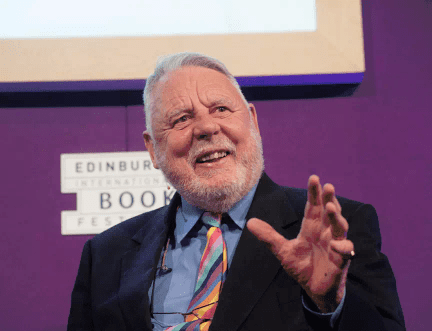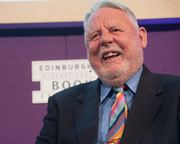More articles Saturday 29 August 2015 11:25am
Terry Waite delivers the Frederick Hood Memorial Lecture

The West will have to enter into dialogue with Islamic State terrorists if it wants to stop the violence, former hostage Terry Waite has said at his Book Festival event yesterday. Waite, who was kidnapped in 1987 and held in Lebanon for almost five years while acting as special envoy to the Archbishop of Canterbury, told his audience, just as past terrorist situations had only been solved by talking to the other side, “this will happen in this case.”
He added: “Eventually we will have to talk [to IS]. When we see these youngsters on camera beheading people - I’ve had to watch these, professionally, and they are terrible - those are psychopaths. Not every young person who joins that organisation is a psychopath.
“Eventually we will have to get to some of the root causes and not just deal with symptoms. Too often in our foreign policy we have knee-jerk reactions and deal with symptoms rather than root issues.” He said that the reason for this approach was that tackling root issues took time and politicians were focused on five year cycle of General Elections and just want to be seen to be doing something.
Waite was in conversation with James Runcie, the son of the Archbishop of Canterbury, Robert Runcie, whom he had represented in the Middle East at the time of his kidnapping. Waite had been taken hostage because it was perceived, wrongly, that he and the Anglican Church were somehow connected with the US Army officer Oliver North selling guns to Iran.
Waite had gone to Lebanon to negotiate with a group of kidnappers against Runcie’s wishes because, he said, the Church’s reputation hinged on him showing that they had clean hands. Waite said: “The reputation of the Church was at stake, my personal reputation was at stake. I had said I’m going to speak to those fellas because I’ve not had anything to do with arms dealing and would not, and I almost guarantee you, had I not done that, forever it would have been said ‘Oh, the Church is playing two games here: saying they condemn arms deals on the one and dealing beneath the surface on the other’. And that would have been wrong, and that would have been wrong for your father.”
James Runcie said that his family had been “cross” with Waite, not just because he had disobeyed their father but because of what he had put his wife, Frances, through.
Waite said that “rather than guilt, I felt sorrow” about had happened: “Not just for Frances and the others, I underestimated the resilience of my children because I used to worry terribly about what they were going through, but I felt sorrow for the family and sorrow for your father, I really did, because I felt he got very unfairly pilloried and attacked by the press, not just for this but for many things, but he was, and is now being recognised, a very great man.”
Waite also talked about his novel, a comedy set aboard a cruise ship, called The Voyage of the Golden Handshake. Explaining why he wrote it, he said: “I think it’s very important, despite all the troubles of the world, and there are many, we should not be robbed of our humour, we should be able to laugh, it’s is good for. I thought, more than anything else, I wrote it to make me laugh. And it was surprisingly good fun to write.”


 Major new partnership with Celtic Connections
Major new partnership with Celtic Connections 

